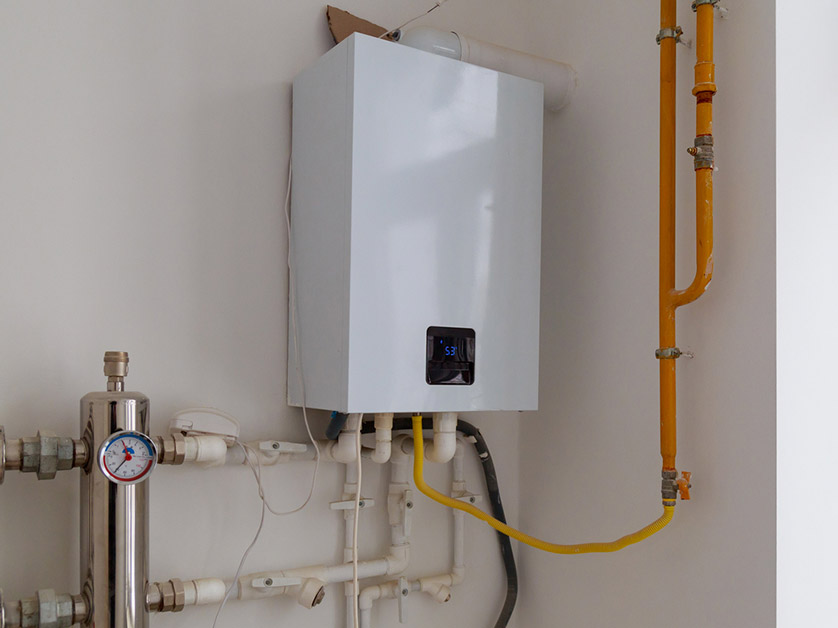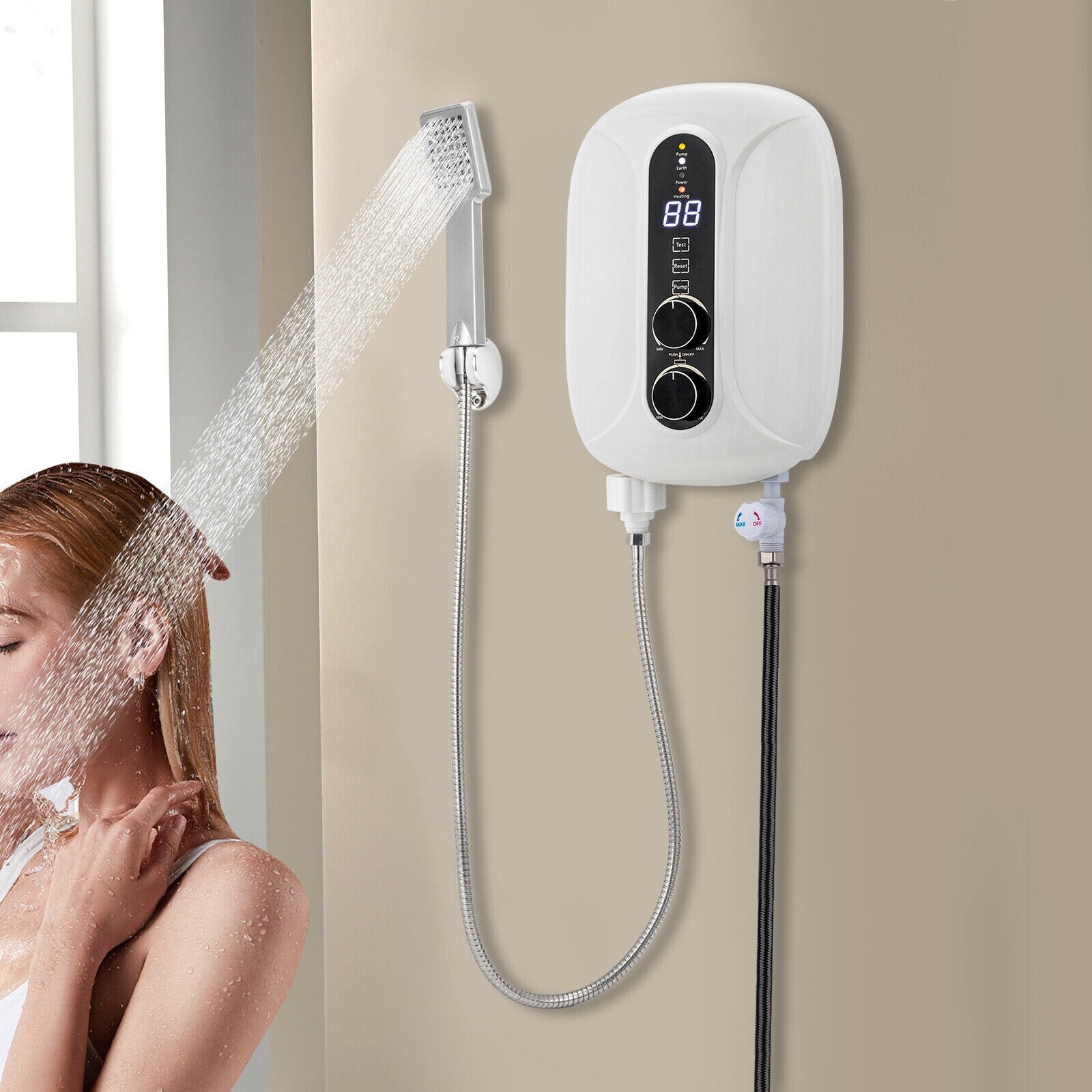Do you find yourself looking for suggestions on Unveiling the Hot Trend: The Benefits of Tankless Water?

In a world where ease and performance reign supreme, it's not a surprise that home owners are regularly on the lookout for smarter ways to handle their home's power consumption and convenience. One technology that has steadily gotten appeal is the tankless water heater. However what exactly makes these systems stand apart from the conventional tank-based designs a lot of us grew up with? Let's dive in and discover the benefits of tankless water heaters, helping you decide if it's time to make the switch in your home.
Intro
Image this: you enter the shower after a long day, expecting a calming cascade of warm water, only to be greeted by icy droplets due to the fact that the last individual utilized all of it up. Audio familiar? Traditional hot water heater save a set amount of warm water, suggesting you go to the grace of that container's supply. Tankless systems, on the other hand, warmth water as needed. No more running out mid-shower, no more fumbling with schedules simply to make certain hot water is offered.
Recognizing Tankless Water Heaters
What Are Tankless Hot Water Heater?
Tankless water heaters, often called on-demand or instantaneous hot water heater, provide hot water just as it's needed. Instead of keeping gallons of pre-heated water, these systems kick right into action the minute you turn on the tap. Water travels through a warmth exchanger, warming up in real-time, suggesting you obtain an undisturbed flow of warm water without the requirement for a large tank sitting lazily by.
Just how Do They Vary from Conventional Solutions?
Standard heating systems hold a storage tank of hot water, using power to maintain that tank at a consistent temperature level. Tankless systems eliminate the standing supply, lowering squandered energy and the cumbersome footprint of a huge cyndrical tube. Essentially, you're updating from a "accumulation" mindset to a "made-to-order" technique.
Common Kinds Of Tankless Systems
Tankless hot water heater typically can be found in 2 selections: gas and electrical. Gas versions have a tendency to supply greater circulation prices, ideal for larger houses, while electric models usually serve smaller homes and are commonly less complicated to install. Furthermore, some systems are made for point-of-use (offering one component) while others can take care of the whole home's warm water demands.
Trick Advantages of Tankless Hot Water Heater
1. Endless Warm Water Supply
Ever before needed to arrange showers so everyone obtains their fair share of warm water? With tankless, that ends up being a distant memory. As long as the heating unit's circulation capability isn't gone beyond, you can take back-to-back showers without turning into a popsicle.
2. Energy Performance and Price Financial Savings
Say goodbye to heating up a giant storage tank's worth of water and maintaining it cozy all day. Tankless heating units lower standby energy losses, which can lower utility expenses. While the first cost may be greater, the long-term savings commonly validate the investment.
3. Space-Saving Style
If your home is short on storage, removing the cumbersome storage tank maximizes valuable area. Tankless units are compact and can usually be installed on walls, hidden in edges, or set up in tight energy closets without grabbing all of the whole space.
4. Longer Life-span
A well-kept tankless hot water heater can outlast its tank-based relative. Traditional storage tanks could last 10-15 years, while tankless models can keep downing along for two decades or more, making them a solid investment in time.
5. Improved Water Quality
Storing water in a container can occasionally result in sediment build-up or a slightly "off" preference. With tankless systems, fresh water is heated up right away, decreasing the chances of sediment build-up and potentially providing cleaner-tasting water.
Considerations Prior To Changing
Though the advantages are compelling, it's a good idea to consider a couple of factors prior to completely dedicating.
Initial Financial Investment Expenses
Tankless heating systems commonly include a higher ahead of time price. Between the device itself and prospective installation alterations, the preliminary cost could offer you sticker label shock. However bear in mind to watch it as a long-term investment.
Setup Requirements
Relying on your home's infrastructure, you could need extra electric capacity or gas line upgrades. Ensure you recognize the installment requirements and speak with a specialist to stay clear of shocks.
Assessing Your Home's Water Use Patterns
If your house at the same time utilizes several fixtures with high warm water need, see to it the unit's circulation price satisfies your needs. Knowing your usage patterns aids you select the ideal size and type of tankless heater.
Upkeep and Treatment Tips
Tankless systems are fairly reduced maintenance, yet they aren't set-it-and-forget-it devices.
Regular Cleaning and Descaling
Difficult water minerals can develop in the heat exchanger, impacting efficiency. Regular descaling (typically recommended every year) keeps the system running at peak performance.
Annual Expert Evaluations
A yearly checkup from a specialist guarantees small concerns are captured early. They'll assess the system's efficiency, seek leaks, and assist keep optimal effectiveness.
Making Certain Proper Ventilation
For gas models, correct air flow is essential to safely expel exhaust gases. Make certain airing vent systems are tidy and properly installed to avoid any kind of prospective safety and security threats.
Comparing Different Brands and Designs
Not all tankless water heaters are created equivalent.
Looking Into Dependable Manufacturers
Look for trusted brands with a background of creating high quality units. A trusted maker often supplies better consumer support and longer service warranties.
Checking Out Reviews and Individual Responses
Individual testimonials and feedback from next-door neighbors or pals that have actually gone tankless can provide useful insights. Often, real-life experiences can be more telling than advertising and marketing brochures.
Installation: DIY or Professional?
While some home owners relish tackling tasks themselves, tankless installment could not be the most effective time to break out the toolbox.
Benefits and drawbacks of Do It Yourself Setup
A DIY set up might conserve cash, however it features dangers. Inaccurate installation can lead to inefficiency or security concerns. If you come in handy and have experience, it may be feasible-- yet proceed with caution.
When to Call a Specialist Plumbing Professional
For a lot of, calling a pro makes certain whatever's done correctly. A specialist plumbing technician understands neighborhood codes, sizing requirements, and airing vent criteria, decreasing the threat of accidents.
Making the most of Performance
You've bought a tankless unit-- currently maximize its performance.
Ideal Temperature Level Setups
Most individuals set their units in between 120-140 F. Adjusting the temperature can enhance comfort and cost savings. Experiment to discover a wonderful spot that doesn't waste energy.
Pairing with Low-Flow Fixtures
Want to extend your device's abilities? Think about setting up low-flow showerheads and faucets. They reduce water use, enabling your tankless system to supply a consistent stream of warm water without straining.
Ecological Effect
Tankless hot water heater line up with greener living objectives.
Reduced Carbon Impact
By utilizing less energy and just home heating water as needed, tankless systems can lower your home's carbon impact, reducing your environmental effect.
Saving Natural Resources
Much less energy consumption and much less wasted hot water equate into less natural resources being utilized, an ecological win-win.
That Profits A Lot Of from Tankless Heaters?
The appeal of tankless heating systems is that they can fit a selection of households.
Large Families vs. Single Occupants
Large households may like the unlimited hot water supply, while single occupants appreciate the power savings from not warming a whole container for simply one person's morning shower.
Property Owners with Limited Room
If your home is short on square footage, shedding the large tank liberates space for various other fundamentals-- or possibly just extra breathing space.
Eco-Conscious Customers
Going tankless aligns with eco-friendly values, ensuring you're not squandering power or resources.
Future Trends in Tankless Water Heaters
The globe of home devices is ever-evolving, and tankless water heaters are no exemption.
Smart Home Combination
Envision adjusting your water heater's temperature level through an app or getting maintenance informs on your phone. As smart home technology advances, we'll see even more connection and benefit.
Innovations in Innovation
R&D is frequently boosting heat exchangers, making systems a lot more reliable and resilient. Future designs might be even quieter, a lot more portable, and better suited for differing environments.
Final thought
Choosing a tankless water heater is greater than simply upgrading your home's hot water system; it's investing in long-term convenience, energy performance, and a greener lifestyle. By considering your house's water use, being mindful of installation needs, and devoting to normal upkeep, you can delight in a steady stream of hot water without the luggage of a bulky tank. As technology develops, you can expect also smarter, more effective tankless options that not only make your life easier however additionally profit the world.
Why You Should Consider a Tankless Water Heater for Your Home
Energy Efficiency and Cost Savings
Tankless water heaters, also known as on-demand water heaters, heat water only when needed. This means they don't waste energy keeping a tank of water hot constantly. This efficiency translates into substantial cost savings on your monthly energy bills.
Endless Hot Water Supply
One of the significant advantages of tankless water heaters is their ability to provide a continuous supply of hot water. Traditional tank water heaters have a limited capacity and can run out of hot water, especially during peak usage times. In contrast, tankless water heaters can provide an endless stream of hot water, making them ideal for larger families or homes with high water usage.
Space-Saving Design
Tankless water heaters are compact and take up significantly less space compared to traditional tank heaters. They can be installed on walls, under cabinets, or even outside, freeing up valuable space in your home. This makes tankless water heaters a great option for smaller homes or properties with limited space for a traditional water heater.
Longer Lifespan and Lower Maintenance
Tankless water heaters typically have a longer lifespan compared to traditional tank heaters. They can last up to 20 years or more with proper maintenance. Additionally, tankless systems are designed with replaceable parts, which can extend their lifespan further and reduce long-term maintenance costs.
Environmentally Friendly
Reducing energy consumption not only saves you money but also benefits the environment. Tankless water heaters contribute to a smaller carbon footprint by using less energy to heat water. Their energy efficiency and ability to minimize standby heat loss make them an eco-friendly choice for environmentally conscious homeowners.
Customized Temperature Control
Tankless water heaters offer precise temperature control, allowing you to set the desired temperature to meet your specific needs. This level of customization ensures you always have water at the perfect temperature for your comfort and usage requirements.
https://beantownservices.com/blog/consider-tankless-water-heater-for-your-home

As a serious person who reads on Why You Should Consider a Tankless Water Heater, I thought sharing that excerpt was a great idea. Are you aware of another person who is interested by the niche? Please feel free to promote it. I treasure reading our article about Why You Should Consider a Tankless Water Heater.
Explore